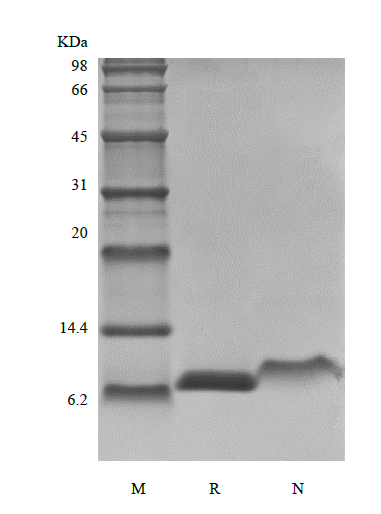The insulin-like growth factors (IGFs) belonged to the insulin gene family, are mitogenic polypeptide growth factors that stimulate the proliferation and survival of various cell types including muscle, bone, and cartilage tissue in vitro. The IGFs are similar by structure and function to insulin, but have a much higher growth-promoting activity than insulin. IGF-1 is produced primarily by the liver as an endocrine hormone as well as in target tissues in a paracrine/autocrine fashion. The production of IGF-1 is stimulated by growth hormone (GH) and can be retarded by undernutrition, growth hormone insensitivity, lack of growth hormone receptors, or failures of the downstream signaling pathway post GH receptor including SHP2 and STAT5B. Recombinant human IGF-1 are globular proteins containing 70 amino acids and 3 intra-molecular disulfide bonds. Mature rat IGF-1 shares 96 % a.a. sequence identity with human IGF-1 and exhibits cross-species activity.

